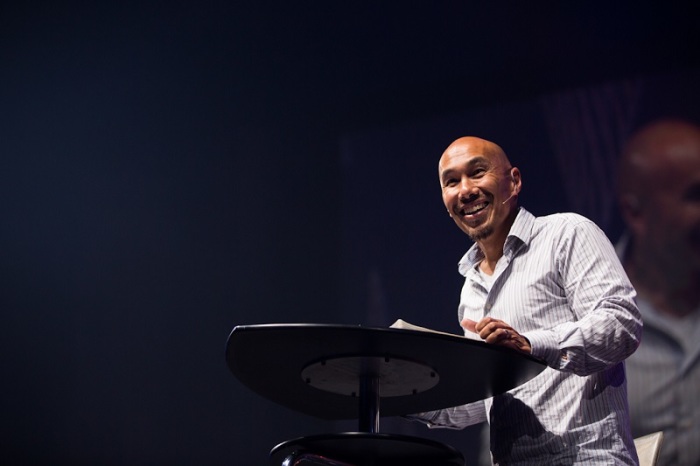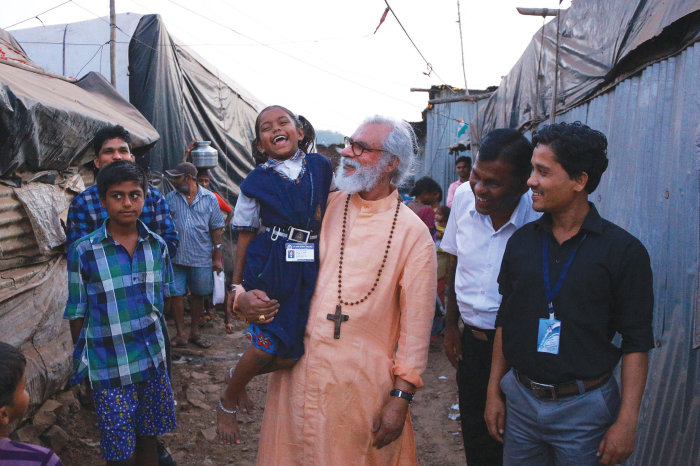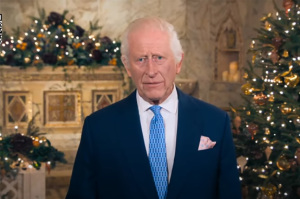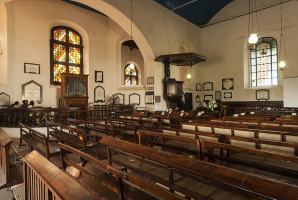Francis Chan defends Gospel for Asia after legal settlement: 'No money was misappropriated'

Popular preacher and author Francis Chan issued a strong defense of the nonprofit charity Gospel for Asia following the announcement Friday that the organization will pay $37 million to settle a class action lawsuit over the alleged misuse of donations.
Chan, the author of Crazy Love and former pastor at Cornerstone Community Church in Simi Valley, California, released a statement responding to the news of Gospel for Asia’s settlement with plaintiffs who accused the organization of mishandling hundreds of millions in donations earmarked for the mission field worldwide.
“When I first heard of the accusations against K.P. Yohannan, I was surprised and deeply concerned,” the 51-year-old pastor, who has served as a GFA board member since 2015, said in a statement shared with The Christian Post.
“I have been let down many times by people I once respected. At the same time, I know that public figures will often be wrongly accused. It goes with the territory.”
Chan explained that when the accusations first hit Gospel for Asia over three years ago, he did not race to “abrupt conclusions” as some of his colleagues did.
He did his own research by traveling to the Texas headquarters and to the mission field in India with a trusted financial expert who was a partner in a large accounting firm. Chan also asked Yohannan and his son, Danny, to send over their tax returns from the previous year.
“After careful research, our conclusion was that there was no money misappropriated and that all funds were channeled to the intended areas,” Chan assured.
As a result of the ordeal, Chan’s admiration for founder K.P. Yohannan “only grew.”
“From the start, it didn’t make sense that he was misappropriating funds,” Chan reasoned. “There was no logical motive. I had spent time in his home and driven with him in his car. He lives very humbly. When I saw his tax returns, I was shocked at how little he made and how much he gave.”
Gospel for Asia, along with Yohannan, have fought a years-long legal battle to clear the organization’s name after accusations that funds meant for charitable purposes were used to build personal residences and a headquarters in Texas, among other things. The lawsuit was brought by former GFA donors Garland and Phyllis Murphy.
GFA will pay $37 million — some of which will be paid over the course of the next year — as part of a legal settlement. But the settlement also shows that the parties agree that evidence demonstrates donations made to GFA earmarked for the mission field did make it to the field and were not used for “personal gain or enrichment.”

GFA has always maintained that funds were not used fraudulently and the settlement agreement refutes previous claims that only a small percentage of donations made it to the mission field.
In reference to the $37 million settlement fund, Chan said that he is “saddened that such a large sum of money had to be given to an attorney.”
“[B]ut I am grateful that [Yohannan] has been cleared of the accusation,” Chan wrote in the statement. “K.P. has been a mentor to me for years. The way that he speaks to God and about Him is different from anyone else I know. His words and actions have led to me loving Jesus more consistently and deeply. He is the first to admit shortcomings in his life, but he continues to be an example to me. For this, I am eternally grateful.”
Although GFA has agreed to a settlement to the legal case that nearly forced the organization to shut down, the charity will need to reapply for memberships in associations such as the Evangelical Council for Financial Accountability and National Religious Broadcasters.
Both organizations dropped GFA as a member institution in 2016 after ECFA highlighted several concerns about GFA’s financial accountability.
In a September 2015 letter, ECFA took issue with the fact that hundreds of millions of dollars in excess cash was being held in GFA partner field accounts in India. Additionally, ECFA stated that GFA was too delayed in sending donations to the mission field which contrasts with the level of urgency communicated in GFA’s donor appeals.
ECFA also voiced concern that: GFA’s foreign field partners were “completely independent organizations” that prevented GFA from exercising “any direct control over field partners;" about $20 million in funds gifted to GFA USA by GFA India were used to build the organization’s headquarters in Wills Point, Texas; and GFA did not have a foreign grant process in place to oversee the use of donations in the mission field.
GFA instituted a new foreign funding process that was developed with the assistance of a new audit firm in 2016.
The nonprofit has been subject to annual audits by the South Carolina-based CPA firm Payne, White and Schmutz. All audits have come back clean.
The organization has also hired one of the big four accounting firms in the United States to objectively analyze the flow of GFA donations to the mission field.
Johnnie Moore, an evangelical media communications executive who is acting as a spokesperson for GFA, told The Christian Post last week that even before the lawsuit, GFA was working to satisfying many of ECFA’s concerns.
"The legal case has further prepared them to complete that process," Moore said. "The organization is confident it can meet the criteria necessary for membership again in accrediting bodies like the NRB, once they choose to pursue it."
Follow Samuel Smith on Twitter: @IamSamSmith
or Facebook: SamuelSmithCP





























